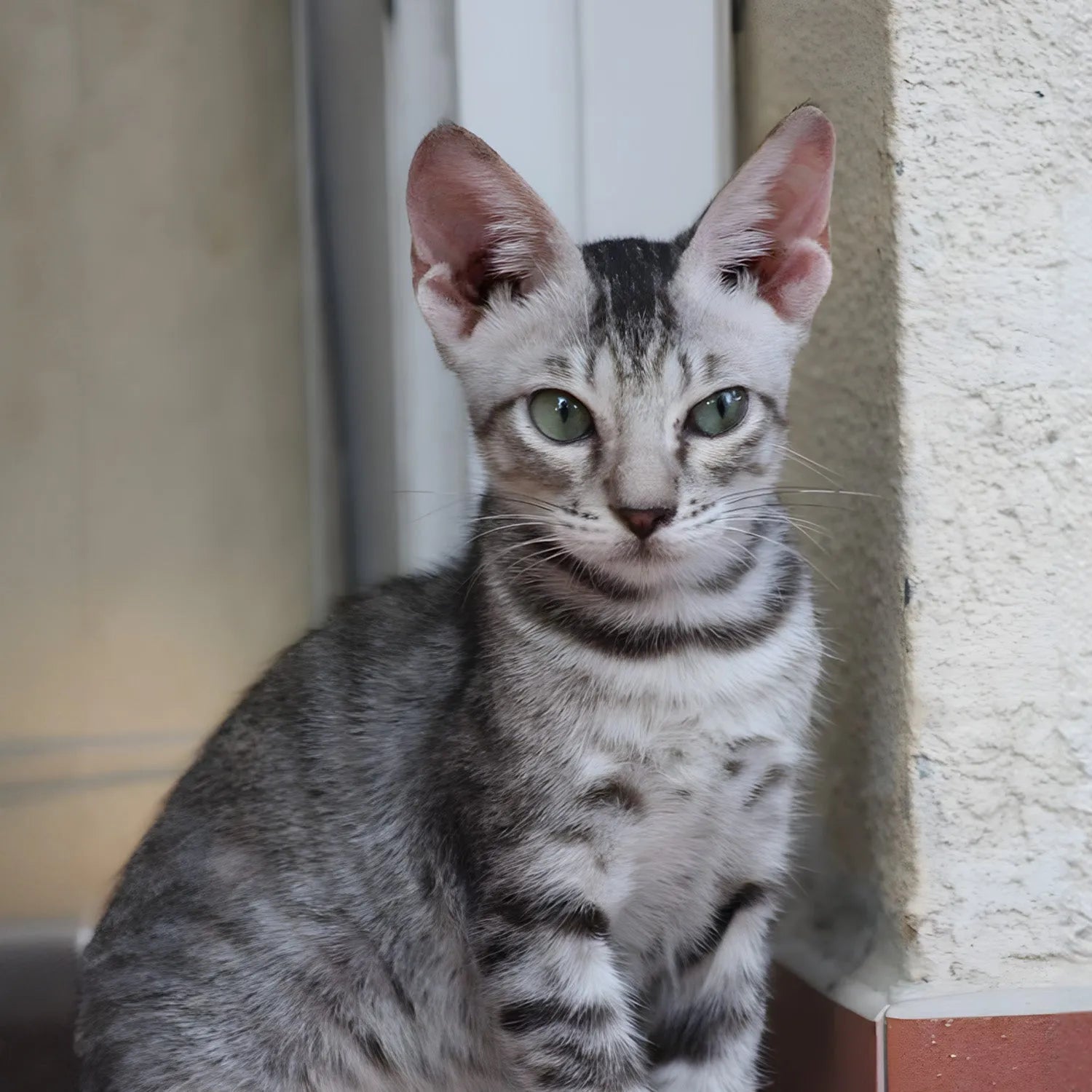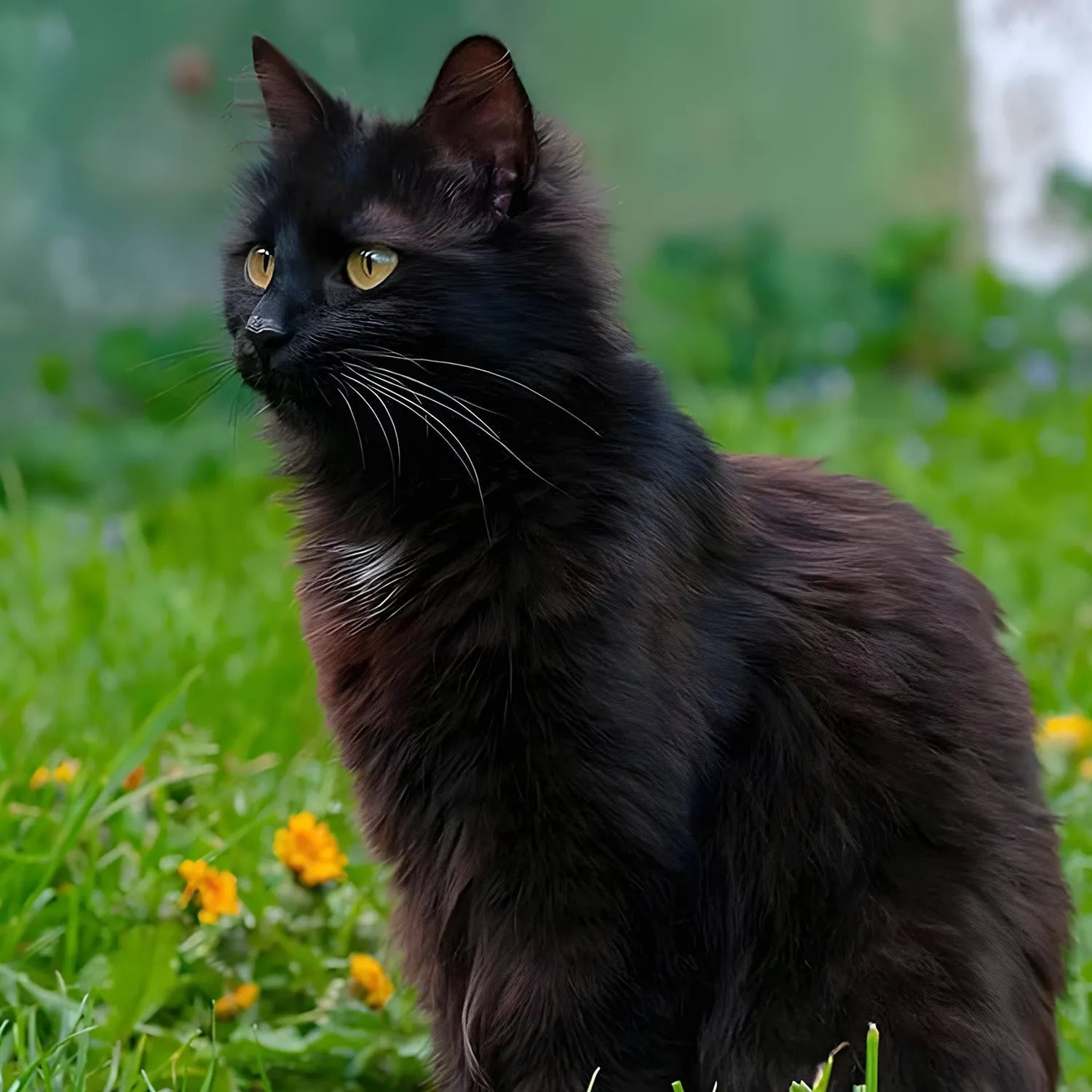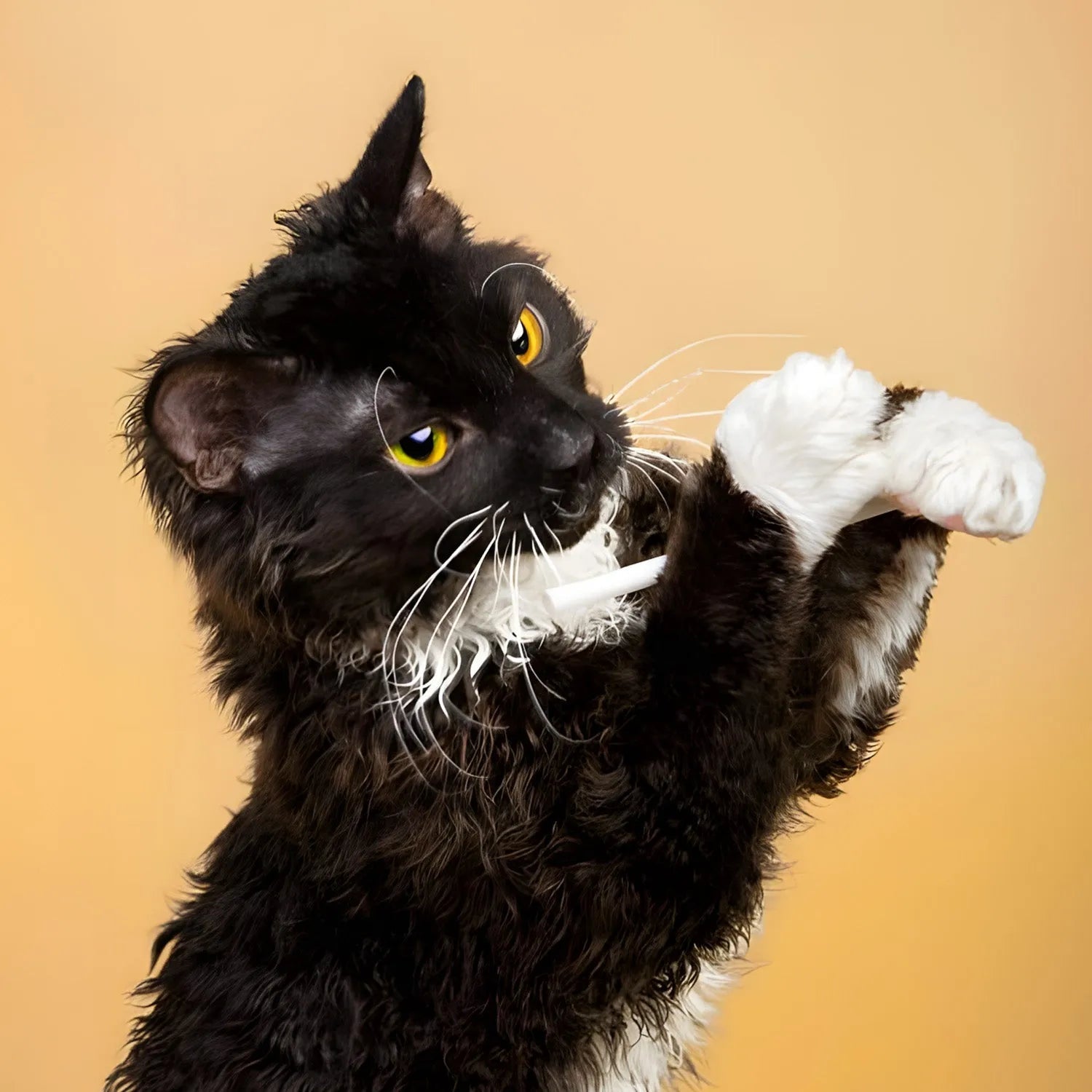Japanese Bobtail: The Lucky and Playful Feline
Introduction
The Japanese Bobtail is a unique and ancient breed, instantly recognizable by its short "pom-pom" tail and sleek, athletic build. In Japanese culture, these cats are considered symbols of good fortune and are often depicted in art and folklore, including the famous "Maneki Neko" or "beckoning cat" figurines. Japanese Bobtails are known for their playful, outgoing nature and strong bonds with their human families. If you're looking for an active, friendly, and culturally significant cat, the Japanese Bobtail may be the perfect companion for your home. In this blog, we’ll explore the Japanese Bobtail’s lifestyle, behavior, grooming needs, trainability, and how it interacts with humans and other pets.
Ratings (1-5)
-
Environmental Adaptability: 5
-
Food Consumption: 3
-
Need for Companionship: 5
-
Trainability: 5
-
Tolerance of Children: 5
-
Ease of Domestication: 5
History and Origins
The Japanese Bobtail has a long and rich history that stretches back over a thousand years. The breed is believed to have originated in Japan, where it was first recorded in ancient manuscripts and artwork. These cats were prized for their unique bobbed tails and their ability to keep palace grounds and rice fields free from rodents. In Japanese folklore, the Japanese Bobtail is considered a symbol of good fortune, and they are often associated with the "Maneki Neko," the lucky cat figurine found in shops and restaurants throughout Japan. The breed was introduced to the West in the 1960s and has since gained popularity for its playful nature and striking appearance.
Physical Characteristics and Colors
The Japanese Bobtail is a medium-sized cat with a lean, muscular build and long, slender legs. The breed's most distinctive feature is its short, pom-pom-like tail, which is caused by a natural genetic mutation. No two Japanese Bobtail tails are alike; each one is unique, with variations in length and shape. The breed has a triangular head with high cheekbones, large, oval eyes, and large ears that sit upright on the head, giving the cat an alert, curious expression. The coat of the Japanese Bobtail can be short or long, and it comes in a variety of colors and patterns, including solid, bicolor, and tricolor (calico). The calico pattern, known as "mi-ke" in Japan, is particularly popular and is often associated with good luck.
Lifestyle and Behavior
Japanese Bobtails are known for their playful, energetic personalities. They are incredibly active cats that love to run, jump, and explore their surroundings. Japanese Bobtails are often described as "dog-like" because they enjoy fetching toys, following their owners around the house, and even playing in water. Despite their high energy levels, Japanese Bobtails are also incredibly affectionate and form strong bonds with their human families. They are social cats that thrive on interaction and are happiest when they are involved in family activities. Japanese Bobtails are known for their cheerful disposition and will often greet their owners at the door or engage them in conversation with soft chirps and trills.
Trainability and Intelligence
Japanese Bobtails are highly intelligent cats that can be trained to follow commands, perform tricks, and even walk on a leash. They are quick learners and respond well to positive reinforcement techniques, such as treats and praise. Japanese Bobtails enjoy mental challenges and are often adept at solving puzzle toys or learning new tricks. Their intelligence, combined with their playful nature, makes them easy to train and a joy to interact with. Training sessions with Japanese Bobtails are often a fun and rewarding experience for both the cat and the owner. They also have a natural curiosity and love to explore new environments, making them highly adaptable to different living situations.
Social Behavior and Human Interaction
Japanese Bobtail cats are incredibly social and form strong bonds with their human families. They are affectionate cats that enjoy being involved in every aspect of their owner’s life, and they are known for their love of attention. Japanese Bobtails are particularly known for their vocal nature and will often communicate with their owners through a variety of chirps, trills, and purrs. They are not typically demanding cats, but they will seek out affection and companionship when they want it. Japanese Bobtails thrive in homes where they can receive plenty of love and attention, making them ideal for individuals or families who enjoy spending time with their pets.
Compatibility with Children and Other Pets
Japanese Bobtails are excellent companions for children due to their playful and patient nature. They enjoy interactive play and are generally tolerant of children’s antics, provided they are treated with respect. Additionally, Japanese Bobtails tend to get along well with other pets, including dogs, as long as they are properly introduced. Their sociable and adaptable nature allows them to integrate well into multi-pet households, and they often enjoy the company of other animals as much as they do humans. Japanese Bobtails are known for their ability to form strong bonds not only with their human families but also with other pets in the household.
Grooming and Care
The grooming needs of a Japanese Bobtail depend on whether they have a short or long coat. Shorthaired Japanese Bobtails require minimal grooming, with weekly brushing usually sufficient to remove loose hairs and keep their coat looking healthy. Longhaired Japanese Bobtails, on the other hand, require more frequent brushing—at least two to three times a week—to prevent tangles and mats. Regular dental care, ear cleaning, and nail trimming are also important to maintain their overall health. Despite their grooming needs, Japanese Bobtails enjoy the bonding time that grooming sessions provide, and it can be a great way to strengthen the bond between cat and owner. Bathing is generally not necessary unless the cat gets particularly dirty, as Japanese Bobtails are good at keeping themselves clean.
Health and Lifespan
Japanese Bobtail cats are generally healthy, with no major breed-specific health issues. Thanks to their natural genetic mutation, they do not suffer from the same spinal problems that can affect other bobtailed breeds. However, regular veterinary check-ups and a balanced diet are essential to maintain their health. With proper care, Japanese Bobtails can live up to 12-16 years or more. Regular monitoring and preventive care are important to ensure a long and healthy life for your Japanese Bobtail cat.
Environmental Adaptability
Japanese Bobtails are highly adaptable and can thrive in various living environments, whether in a small apartment or a larger home. They are particularly well-suited to indoor living, where they can enjoy a stimulating environment with plenty of interactive play. Japanese Bobtails are known for their resilience and can adjust well to different climates and household settings. Their adaptable nature makes them well-suited to a wide range of living conditions, but they thrive best in homes where they can receive plenty of attention and interaction from their owners.
Feeding Requirements
A balanced diet is crucial for maintaining the Japanese Bobtail cat's health and energy levels. High-quality cat food that is rich in protein is recommended. Fresh water should always be available. Because Japanese Bobtails are highly active, they may require more calories than less active breeds to support their energy levels. Consult your veterinarian for specific dietary recommendations based on your cat's age, weight, and health needs. Monitoring their diet to prevent obesity is essential, as Japanese Bobtails can be prone to overeating if not properly managed.
Conclusion
The Japanese Bobtail is a playful, intelligent breed that brings energy, affection, and a touch of good fortune to any household. Their intelligence, social nature, and striking appearance make them wonderful pets for families and individuals alike. If you're looking for a cat that will form a deep bond with you and keep you entertained with its lively antics, the Japanese Bobtail might be the perfect fit for you.
For more information about other cat breeds and pet care tips, stay tuned to our blog!
References:
-
Nakamura, H. (2021). "The Playful and Lucky Japanese Bobtail Cat." *Journal of Feline Studies*, 35(3), 201-215.
-
Richards, A. (2020). "Caring for Your Japanese Bobtail Cat: A Comprehensive Guide." *Cat Lover’s Magazine*, July issue, pp. 30-40.
-
Harris, E. (2019). "Health and Wellness in Japanese Bobtail Cats." *Veterinary Journal*, 79(2), 123-137.


